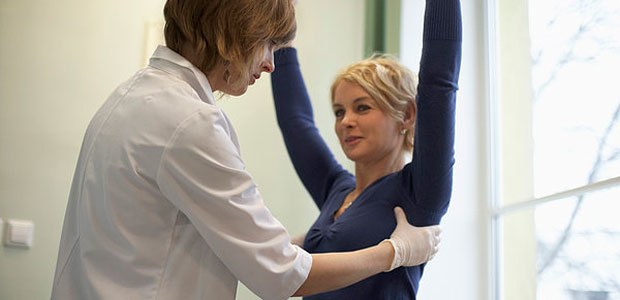
In recent years, with the incidence of breast cancer increased gradually, breast cancer has already become a common disease in women, which poses a serious threat to their health. The incidence of breast cancer is correlated to many factors. Apart from those unchangeable factors such as gender, age and genetic risk factor, it is also related to reproduction, breastfeeding and diet. According to clinical researches, those factors below may increase your risk of developing breast cancer.
Unchangeable Factors
1. Gender: Breast cancer is about 100 times more common among women than men.
2. Aging: Your risk of developing breast cancer increases as you get older. About 1 out of 8 invasive breast cancers are found in women younger than 45, while about 2 of 3 invasive breast cancers are found in women age 55 or older.
3. Genetic risk factors: About 5% to 10% of breast cancer cases are thought to be hereditary, meaning that they result directly from gene defects (called mutations) inherited from a parent. The most common cause of hereditary breast cancer is an inherited mutation in the BRCA1 and BRCA2 genes.
4. Family history of breast cancer: Breast cancer risk is higher among women whose close blood relatives have this disease. Having one first-degree relative (mother, sister, or daughter) with breast cancer approximately doubles a woman's risk.
5. Personal history of breast cancer: A woman with cancer in one breast has a 3 to 4 fold increased risk of developing a new cancer in the other breast or in another part of the same breast.
6. Dense breast tissue: Breasts are made up of fatty tissue, fibrous tissue, and glandular tissue. Women with dense breasts have a higher risk of breast cancer than women with less dense breasts.
7. Menstrual periods: Women who have had more menstrual cycles because they started menstruating early (before age 12) and/or went through menopause later (after age 55) have a slightly higher risk of breast cancer.
8. Previous chest radiation: Women who, as children or young adults, had radiation therapy to the chest area as treatment for another cancer have a significantly increased risk for breast cancer.
Lifestyle-related factors
1. Having children: Women who have had no children or who had their first child after age 30 have a slightly higher breast cancer risk. Having many pregnancies and becoming pregnant at a young age reduce breast cancer risk.
2. Birth control: Studies have found that women using oral contraceptives have a slightly greater risk of breast cancer than women who have never used them.
3. Hormone therapy after menopause: Hormone therapy may also be a risk factor for women to have breast cancer. The decision to use hormone therapy after menopause should be made by a woman and her doctor after weighing the possible risks and benefits.
4. Breastfeeding. Some studies suggest that breastfeeding may slightly lower breast cancer risk, especially if it is continued for 1½ to 2 years.
5. Drinking alcohol: Excessive use of alcohol is closely linked to an increased risk of developing breast cancer.
6. Being overweight or obese: Being overweight or obese after menopause increases breast cancer risk. Having more fat tissue after menopause can increase your chance of getting breast cancer by raising estrogen levels.
*Surgery, in addition to the appropriate chemotherapy and radiotherapy, are effective in treating early cancer, but certain patients in late stage of cancer may not be tolerate surgery well as they can be relatively weak. A combination of carefully planned minimally invasive therapy, chemotherapy or radiotherapy can effectively reduce the side effects and discomfort of treatment and may help patient get better efficacy.













 viber
viber